A farmer’s market in Rogers Park is looking to sell freshly combed honey and rows of various apples — from Gala to Pink Lady — to residents who might not typically be able to afford high-end produce.
Every Sunday, fresh produce is a truck away for Rogers Park residents who attend the Glenwood Sunday Market, located between Morse Avenue and Lunt Avenue — but what can the market offer for the 20 to 30% of Rogers Park residents who do not know where their next meal will come or whether it will be nutritional?
Aiming to make local produce more affordable, the Sunday Market accepts federally funded Supplemental Nutrition Assistance Program cards and Illinois Link Cards as part of their Food Access Program. These cards allow residents to have every dollar spent at the market matched up to $25.
“It gives someone a huge opportunity that couldn’t normally come to the market and buy organic produce, meat or eggs,” said Sean Finn, owner and farmer of Finn’s Ranch.
Finn said because the livestock on his farm are grass-fed, it takes an added 8 to 12 months for them to grow, as opposed to livestock raised on corn. It also adds an additional cost to the meat — but at least customers know it is organic, he said.
“We believe that anyone who wants to eat locally grown and produced food should be able to, regardless of their income level,” said Sheree Moratto, sustainability director at Rogers Park Business Alliance and director of the Glenwood Sunday Market in an Oct. 21 email.
Janna Lombardo, 50, a resident of Rogers Park for 20 years, said she has gone to the Glenwood Sunday Market every Sunday for the past 10 years.
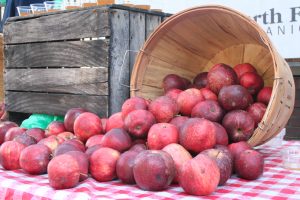
“It’s a little bit more expensive, but it jives with my principles,” she said.
Lombardo said she has never used SNAP before and has not seen a lot of advertisements for it.
“I don’t know if people who are low income would opt to come here,” Lombardo said, adding that she thinks people might feel like they cannot come to the market because they aren’t aware of the matching grant.
Last year, the market provided $20,000 in grants and vouchers to LINK customers, according to the RPBA 2018 Impact Report.
The report also said that 40,000 customers had shopped at the market which is open from the beginning of June to the end of October.
This year so far, Moratto said the RPBA has matched $22,000 in grants.
The market also runs the Community Shares Project, an initiative to increase fresh produce consumption among food insecure residents by teaching them how to cook the produce properly, free of charge.
As the Community Shares Project is not currently funded, Moratto said the dollar matching grant program for customers who use SNAP/Link is their primary focus
Le’ah Kaplan, a resident of Rogers Park and student at Northwestern University said she has been privileged enough to not need SNAP.
“I’m glad that [Chicagoans] have access to these sorts of social programs,” Kaplan said.
Kaplan goes to the market to buy fresh vegetables but goes elsewhere to buy her fruit at a lower cost. She said she prefers shopping local because it supports small businesses, but wants it to be cheap enough to encourage customers to keep coming back.
“It is worth it if you can afford it. If you can’t afford it, then it no longer becomes worth it,” Kaplan said.
Beekeeper Colin Ley said that when his customers buy his honey at the market, they are guaranteed that it is certified organic.
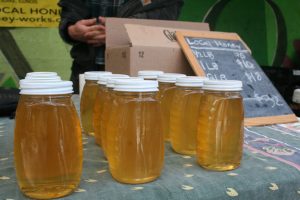
“You get a lot of people scoffing at the price, but if we did it any lower, we wouldn’t be in business,” he said. “Buying everything organic comes [at] a premium price.”
Ley said he loves that most of the vendors at the market take SNAP or Link cards.
The Sunday Market also launched “Giving Sunday” this year, which asks customers to donate to the Food Access Program. According to the Glenwood Sunday Market website, the program provides $20,000 worth of fresh produce annually.
Moratto said these fundraising events, along with individual donations and government grants, are significant sources of funding that enable the RPBA to continue matching customer’s dollars.
“If we are going to provide residents with any sort of substance or help to afford their food,” Ley said, “it should be local, healthy and in line with supporting local businesses.”

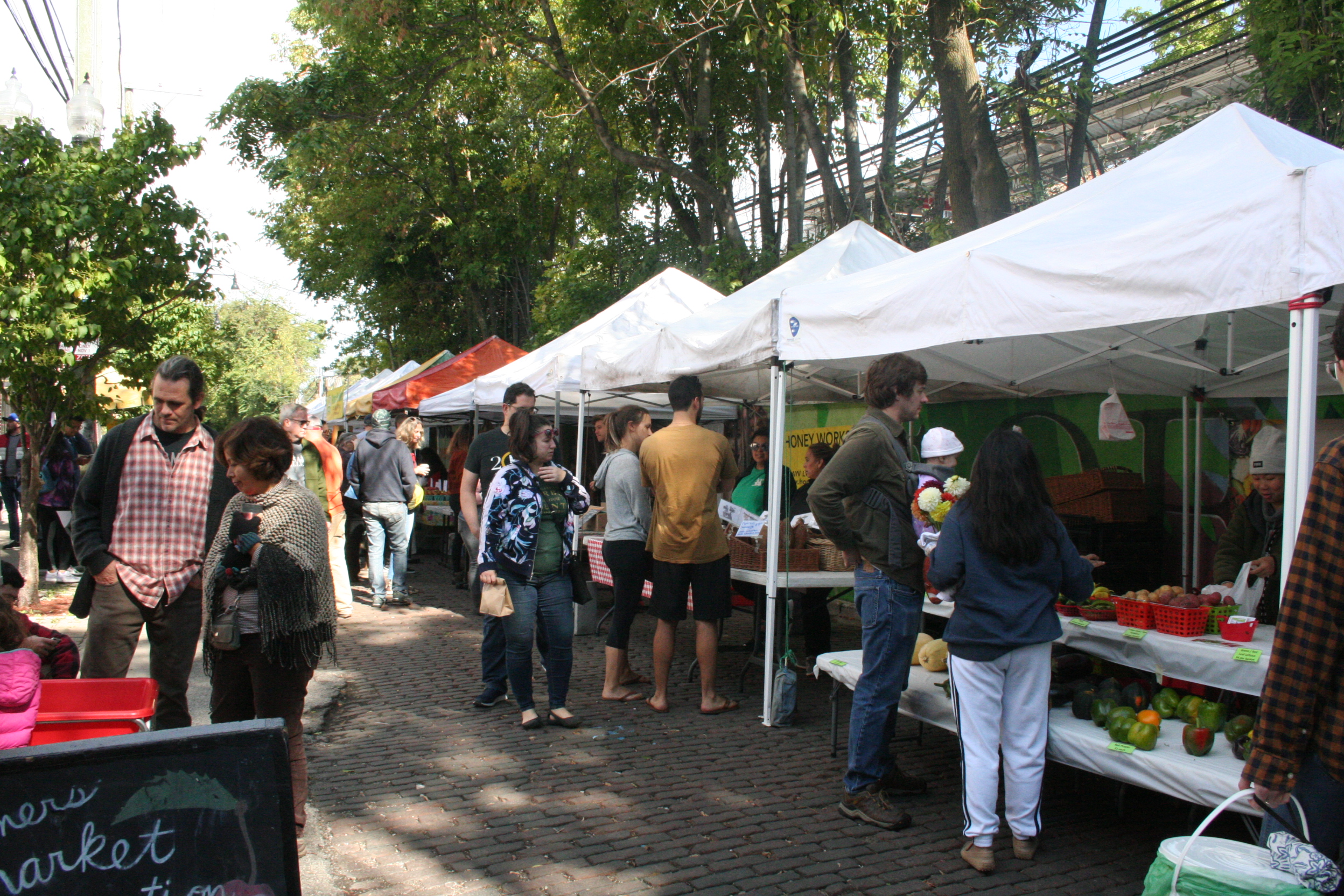
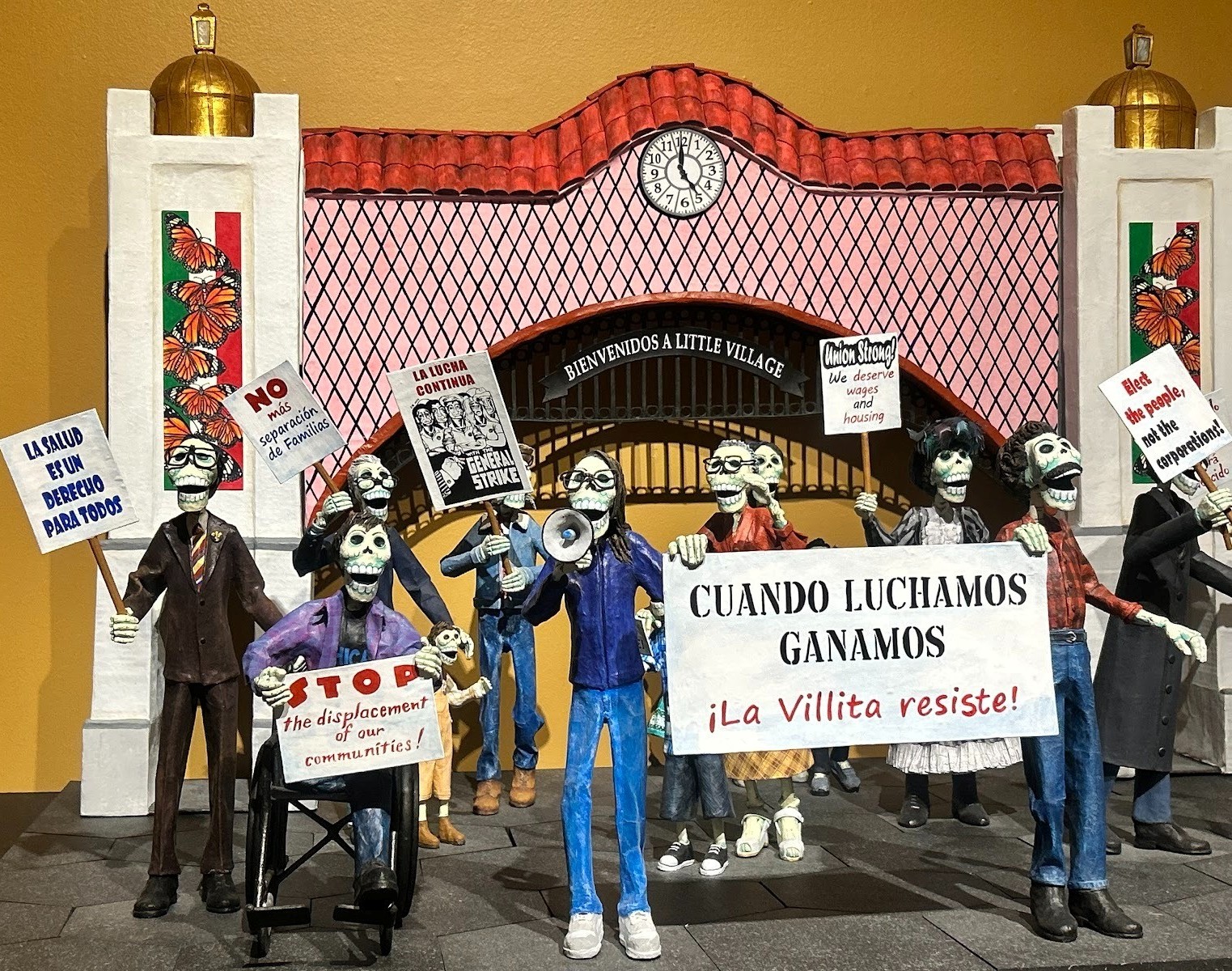

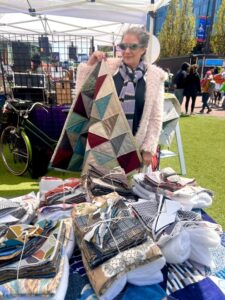
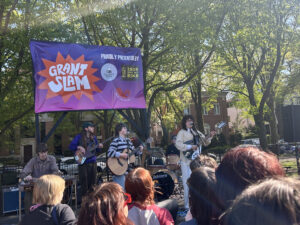







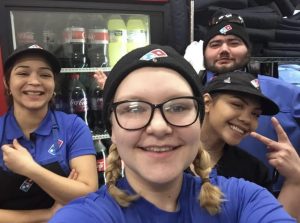
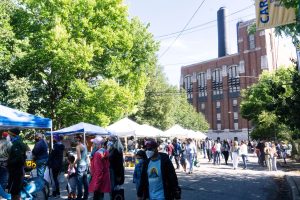
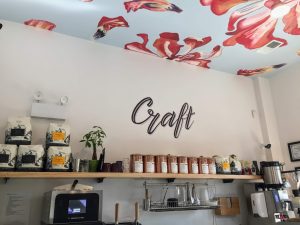
Be First to Comment